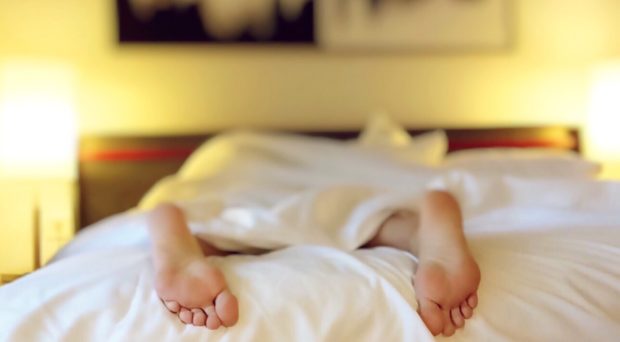
Imagine if you could wake up everyday feeling completely rejuvenated, like you’ve squeezed every last beneficial drop out of your sleep. How do you think that would affect your life? Would you be happier? Would you get more done? Would you have better relationships with family and friends? Could you even live longer?
Sleep is part of what makes us human. We all know we need it, and appreciate it on a daily basis. Yet it is largely taken for granted as a fact of life, and we mostly fail to utilize it to its full potential.
In fact one could argue that as a society we are getting worse at sleep. In the United States up to 70 million people suffer from a sleep disorder, and only 44% reportedly get a good sleep on a regular basis. The American Sleep Disorder Clinics Industry has seen a growth of 4% over the last five years. If this trend continues it will be a $9 billion industry by 2020. Our sleeping habits are largely going downhill.
In the United States up to 70 million people suffer from a sleep disorder, and only 44% reportedly get a good sleep on a regular basis.
This is an extremely worrisome trend which has vast negative consequences. Sleep is a core requirement of life, the quality and quantity of which has a direct impact on both our physical and mental health. Long-term sleep deprivation has been connected to serious health conditions such as diabetes, stroke, heart and kidney disease and high blood pressure. Poor sleep quality has also been linked to obesity and depression. There is even evidence to suggest proper sleeping habits can affect our longevity.
Not only is sleep necessary to maintain a healthy mind and body, it can be proactively used to boost each. Instead of seeing sleep as an inevitable part of every day, we should be optimizing it to get the most benefit out of it.
When it comes to our health we tend to push sleep aside and focus on other contributors such as nutrition and exercise. This is understandable as their impact on health is perhaps more obvious. But sleep should be included in any health plan. How many people do you know who are proactive about incorporating a sleeping plan into their health routine? We plan our exercise regimes to the km or rep and monitor our nutrition like calorie accountants. But when have you ever heard of anyone proactively optimizing their sleeping schedule?
Trying to do anything of substance is extremely difficult when you are sleep deprived. This is because it affects our cognitive function.
We all know that sleep affects out productivity and focus. Trying to do anything of substance is extremely difficult when you are sleep deprived. This is because it affects our cognitive function. Our ability to problem solve, learn, think and be creative is heavily affected by the quality of our sleep. According to the Kellogg School of Management sleep disorders cost $50 billion in lost productivity annually in the United States. What if you didn’t have any more bad sleeps, or could at least reduce their frequency? How much more would you get done?
Optimizing sleep is not difficult. It requires simple self analysis and some trial and error. We all have differing requirements and so an ideal sleeping plan is highly individual.
- Start with the general recommended sleep duration for your age group
- Get into the routine of going to sleep at the same time every night
- Set your alarm for the morning and see whether after a few days you start to wake up naturally a few minutes before the alarm goes off
- If you don’t after five days, set the alarm for 15 minutes later or earlier and try again for a few days
- By repeating this you are likely to start waking up naturally before your alarm goes off within a couple of weeks
Now that you have found your ideal sleep duration, it is crucial that you keep to the schedule. This means going to bed and waking up at the same time every day, even on weekends. Our bodies respond to routine so by falling into one, your body will know when to sleep. This means you will not only fall asleep easily, you will have higher quality sleep.
Sleep optimization can be very powerful. It can have a massively positive impact on your health and productivity, and has the power to change your life. Finding your ideal sleep schedule can take some time, but it starts with awareness and taking action.
Comments